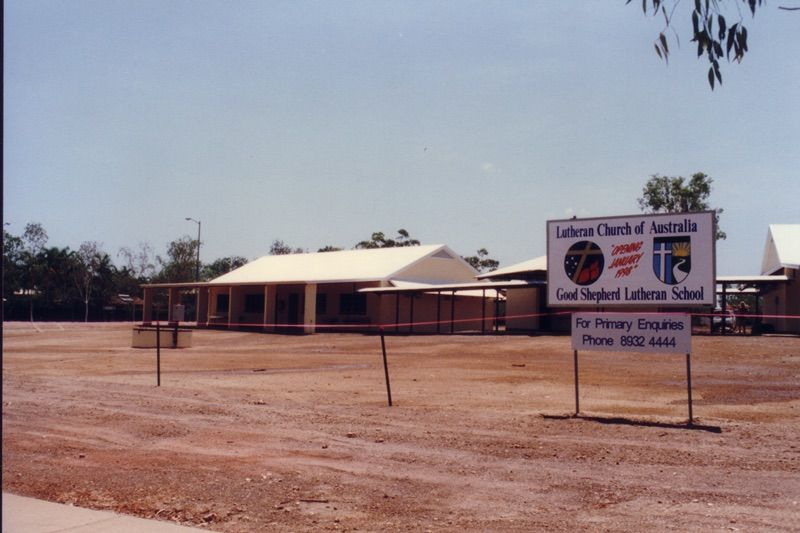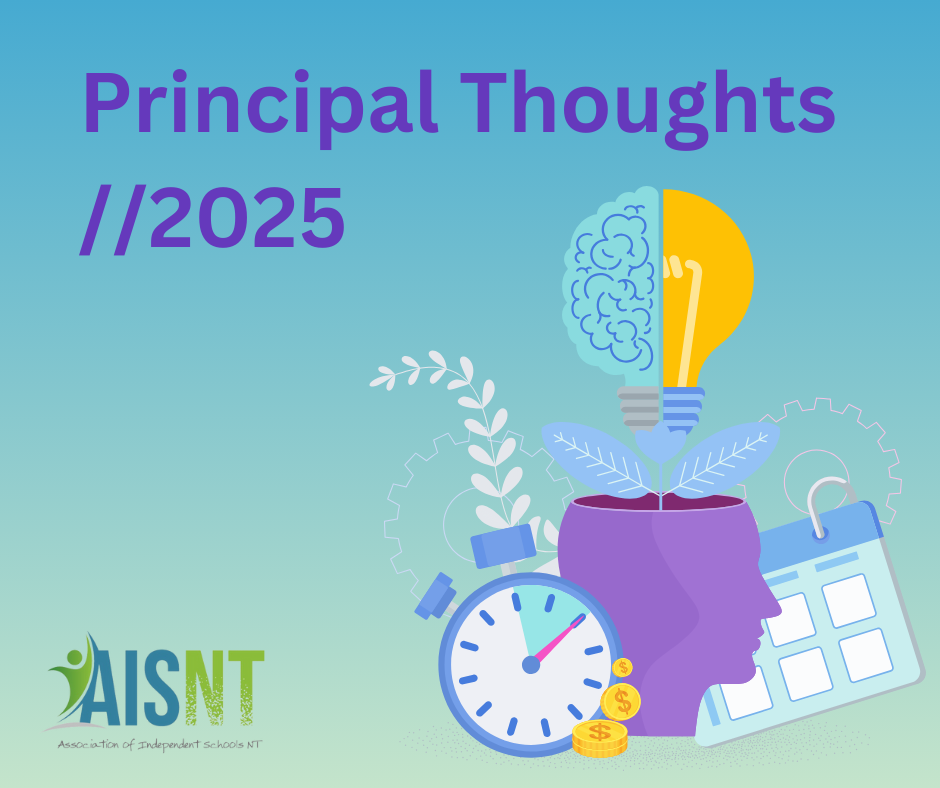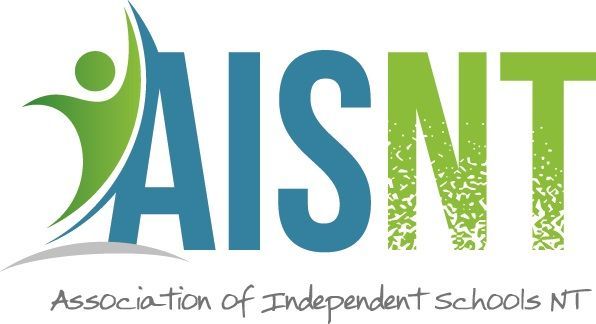It should never be boring – ideas should always flow
Many years ago, I met an old friend at the airport. He was principal of a successful school and indeed was very good at his job. We chatted and he surprisingly said to me “If you hear of any principal’s jobs let me know. I’m starting to become bored at what I’m doing”. I was a little shocked because he had only been in the job for four years. I had been in the job for 20 years or so and still had so much to do. I can honestly say I was never bored and many principal friends of mine would have the same feeling as no doubt most of you do.
This morning, I was asked to address a local Rotary Club about Education and Literacy. I enjoyed preparing for it and presenting the talk. When considering this topic the teaching trilogy rises to the surface. This is “Facts, Knowledge and Wisdom.” Around the world there are such a variety of schools, some of which value the teaching of facts and see the testing of these as something very measurable and therefore an easy indicator of success. Beware the role of certain types of multiple choice tests! I asked a teacher from a country well to the north west of Australia, what was their secret at doing well in international tests. She said that their mode of teaching centered around an acceptable source, usually a text book. The teacher dominated the lesson and students were not expected to ask questions. As you can all imagine, with a strict teacher there was a quiet class. It has also been said that ultimately that engineering graduates from this system could readily build a bridge. However, at that time, if it was broken, they couldn’t fix it.
As we know good education should move beyond facts into the world of knowledge and to do this, students need to be encouraged to think critically, to question and to seek satisfactory answers to their questions which results in understanding and knowledge. This is obviously much harder than absorbing facts. Students should then exercise well considered wisdom to suggest how this knowledge could be used effectively in the real world.
Teaching, which promotes the journey of facts to knowledge and then wisdom is exciting, but challenging and definitely not boring.
I recall a teacher who would go to their filing cabinet and pull out the next lesson. It probably was a good lesson but adding “fresh” to the lesson would surely produce a better lesson.
Education is a never ending story and good ideas can be pulled from everywhere to promote effectiveness and a freshness in teaching. I know I’ve written of the early Greek educators several times before, but I’m fascinated by the notion that in 2,300 - 2,400 BCE teachers could produce ideas that are relevant today. Socrates’ type of questioning, Socratic Questioning, is used today. It was first introduced to me by a Board Coach some time ago. He presented it as an important skill for the effective governing of significant companies. Plato’s Republic is a good jumping off point for discussing government and Aristotle was the original architect of scientific research. Kurt Hahn’s belief in giving students real experiences as a process of gaining knowledge and wisdom was pioneered by him 1920-1966 and is used around the world today.
Howard Gardner is a famous American developmental psychologist and Research Professor of Cognition and Education at the Harvard Graduate School of Education at Harvard University. He retired from teaching in 2019. He is best noted for his Theory of Multiple Intelligence outlined in his 1983 book “Frames of Mind: The Theory of Multiple Intelligences”. This work struck a real chord with me as it did with many other educators. It was truly revolutionary in helping understand children (and indeed adults).The eight intelligences he identified were: Musical, Visual-spatial, Linguistic, Logical - Mathematical, Bodily-kinesthetic, Interpersonal, Intrapersonal, Naturalistic. He included this last one, the intelligence of the naturalist in1999 (identified by him in 1995).In 2016 he considered adding Teaching - Pedagogical Intelligence which he said “allows us to be able to teach successfully to other people.”
A Professor Adams added Digital Intelligence to the list. Gardner suggested that each individual may possess all intelligences but there is always a dominant one. Gardner noted that today’s education system “is heavily biased towards linguistic modes of intersection and to a somewhat lesser degree, towards logical intelligence as well.”
There can be no question about the power of computing in our society and, if used wisely, in education. A friend of mine mentioned to me that he knew what the hardest Maths problem was. He said that for decades the following equation with K being all the numbers from one to 100, was considered such:
X + Y + Z = K
Solving this equation took over a million computing hours to find the solution. The K in fact turned out to be 42. His story added new words into my vocabulary: “Diophantine equation” which is sometimes known as the summing of three cubes. Sadly I’m not a mathematician and please don’t ask me because I can’t explain it! However I guess it was not solvable in Socrates time but illustrates the strength of digital science which is on the move all the time.
One of the popular, relatively recent additions to education is the introduction of Positive Education. Positive Education is the combination of traditional education principles with the study of happiness and wellbeing using the PERMA framework developed by American psychologist Martin Seligman. The five main elements of this are: Positive Emotions, Engagement, Positive Relationships, Meaning, Accomplishment. Martin Seligman is an American psychologist, educator and author of self-help books. He is a strong proponent of well being and positive psychology. His work has been a welcome infusion into modern education.
The work of New Zealand educator John Hattie on Visible Learning has become popular. According to Hattie, Teaching and Learning occurs when teachers see learning through the eyes of their students. The idea is that the students become their own teachers. His thesis is based on huge research, analysing an enormous amount of data. He is 73 and is presently a professor of education and director of the Melbourne Education Research Institute at the University of Melbourne.
The late Sir Ken Robinson (1950-2020) was a British author, speaker and international advisor on education who firmly believed in Creativity in Teaching. To him Dance was as important as Maths. Education should expand our consciousness, capabilities sensitivities and cultural understanding. It should broaden our world view. He was famous for his “Ted” talks, one of which had 66 million views and was titled “Do Schools Kill Creativity?”
As ‘Chalkies’ we operate in a very interesting and vital profession, where change is ever present, where the old can be used anew, and on which society depends for a safe, prosperous and satisfying future. Our role is so very important. We can be assured that new thinking is drifting into our profession continually.
QUOTES WHICH MAY BE HELPFUL
“Let us regard the forests as an inheritance, given to us by nature, not to be despoiled or devastated, but to be wisely used reverently, honoured and carefully”
- Baron Ferdinand Von Mueller (1825-1896) was a German Austrian physician, geographer and botanist. In 1853 he was appointed government botanist for Victoria, became the director of the Royal Botanic Gardens Melbourne and also founded the National Herbarium of Victoria.
“You can choose not to be interested in politics, but you can’t choose to be unaffected by it.”
- Penny Wong Federal Politician, Leader of the Government in the Senate and Foreign Minister in the present Labour Government
“The two important things that I did learn were that you are as powerful and strong as you allow yourself to be, and that the most difficult part of any endeavour is taking the first step, making the first decision.”
- Robyn Davidson. An Australian writer who trekked 2,700 km across the deserts of Western Australia using camels.
“Technique and ability alone do not get you to the top; it is the willpower that is the most important.”
- Junko Tabei. Japanese Mountaineer and first woman to summit Mt. Everest.
Chris Tudor
Principal Liaison & AISNT Historian



